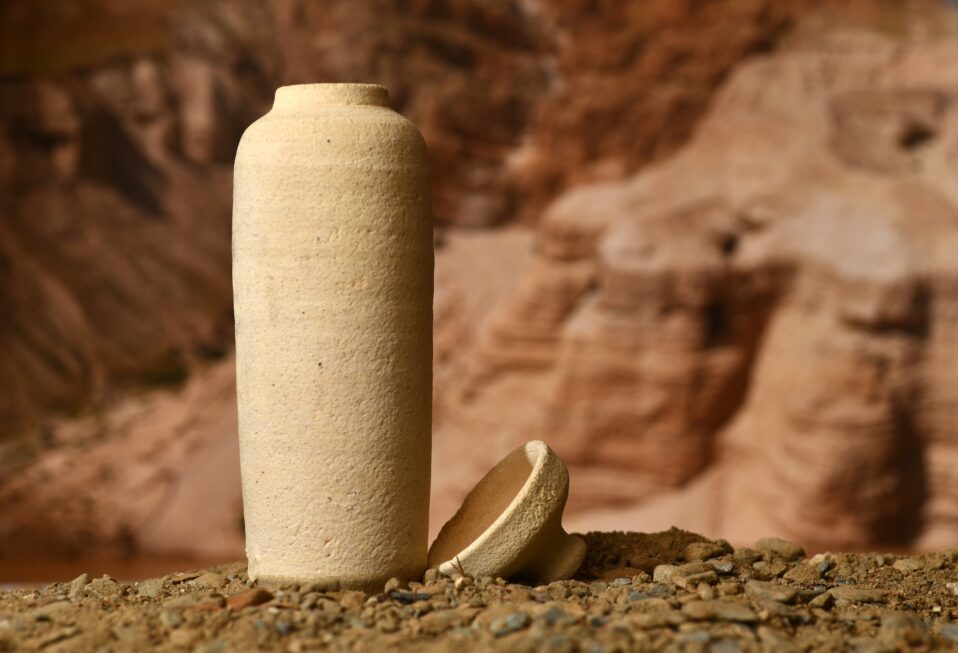By Stephen Faircloth
Tucked into the rugged cliffs on the northwestern shore of the Dead Sea, the ruins of Qumran overlook a landscape that seems barren and forgotten. But beneath its dusty surface, this region once held one of the most extraordinary archaeological treasures in biblical history: the Dead Sea Scrolls.
Discovered by Bedouin shepherds in 1947, the first scrolls were found in a cave near Qumran, launching a discovery that would eventually yield fragments from over 1,000 ancient manuscripts in eleven nearby caves. These scrolls included portions of nearly every book of the Old Testament, every one except Esther, as well as other ancient Jewish writings that shed light on faith and life in the time of Jesus.
The Qumran community, widely believed to have been a sect called the Essenes, lived intentionally and communally in this dry, remote place. Their lives centered on Scripture, purity, discipline, and spiritual devotion. They carefully copied sacred texts in a scriptorium, gathered daily in a long dining hall, and ritually immersed themselves in specially constructed mikva’ot (ritual baths). Even in the wilderness, they were determined to preserve the Word of God and live according to it.
What makes Qumran so compelling isn’t just the incredible preservation of the scrolls, but the example of a people who valued God’s Word above all else. They understood that the Scriptures were not just texts, they were life, identity, and covenant. And so, in the harshest of environments, they chose to live faithfully and preserve truth for future generations.
Centuries later, their devotion still bears fruit. The scrolls discovered in these desert caves have deepened our confidence in the reliability of the Old Testament and opened a window into the spiritual world of first-century Judaism—the same world into which Jesus was born.
As we reflect on Qumran, we’re reminded that God often hides His greatest treasures in unexpected places. He honors those who hunger for His Word, even in the wilderness. The Essenes may never have imagined that their quiet labor would bless millions, but their faithfulness was not in vain.
Are you treasuring God’s Word in your own life? Are there “desert places” where He is calling you to be faithful, even when the fruit is not yet visible?
Stephen Faircloth is the President of CBN Israel, an initiative dedicated to sharing the true story of the Jewish nation and inspiring a global community of Christians to stand with Israel and support her people in need. Our vision is to reshape the global conversation about Israel by fostering understanding, hope, and healing between Jews and Christians around the world. For more than 50 years, the Christian Broadcasting Network has supported Israel. By joining CBN Israel, you become part of this enduring legacy, transforming lives today and strengthening Christian support for Israel for generations to come.




Post a comment